Attending the 25th Anniversary of the annual student-led EQUALL Conference at London Business School, “Lift as You Lead” organised by the LBS Women in Business Club, was both inspiring and thought-provoking. As someone passionate about the intersection of finance, policy, and impact, I was eager to hear from leaders who have navigated these traditionally male-dominated spaces and are now shaping the future of investment and governance. The conferences covered a wide range of critical topics, but what stood out to me most were the candid conversations about the systemic barriers women continue to face and the strategies to break them.
A Conversation with Baroness Dambisa Moyo
Baroness Dambisa Moyo, economist, investor, and member of the UK House of Lords, shared insights from her extensive career at the intersection of finance and policy. With International Women’s Day approaching, she spoke about her upcoming speech in the House of Lords, where she will address the progress women have made in STEM fields. According to the Baroness, the statistics are promising: there are now 1.5 million women in STEM in the UK, and the gender pay gap in science and tech is narrowing. Moyo stressed the importance of focusing on time-series data to identify and amplify what is working: “If we know what is working, we can do more of it.”
Her reflections on board leadership were particularly striking. Drawing from her book on board governance, she underscored the responsibility that comes with board positions, underscoring that stepping down during times of crisis is not an option. Most board positions, she noted, require CEO, CFO, or COO experience—roles that have historically been male-dominated. The Baroness believes that women looking to secure board seats must actively market their global value and develop the financial and operational expertise that boards seek.
This panel was moderated by EQUALL Co-Chair Deb Carey, MBA 2025.
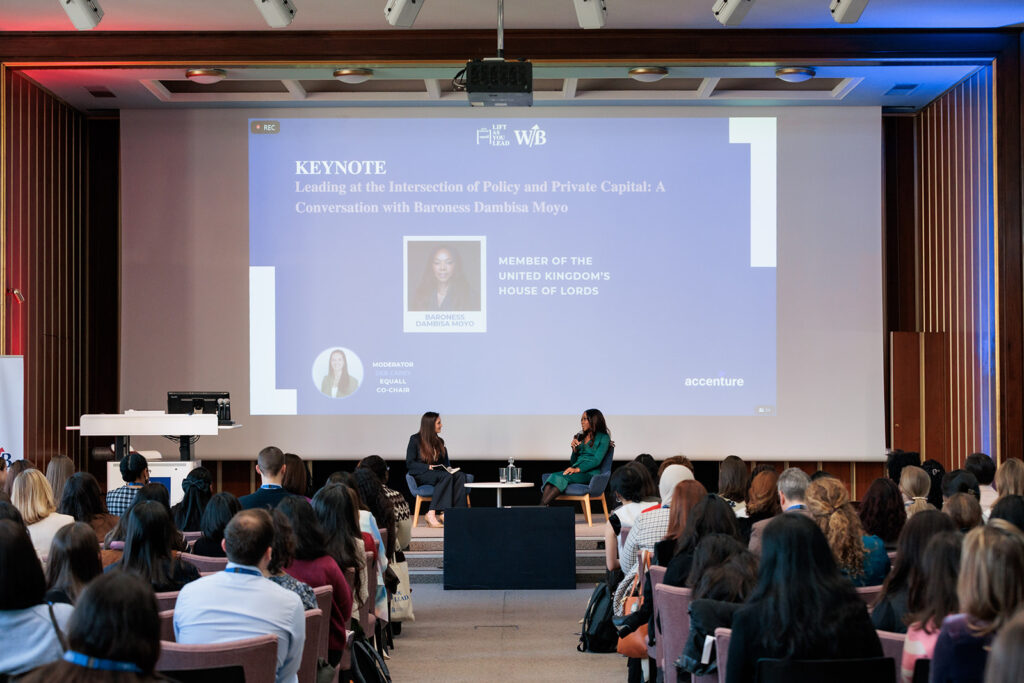
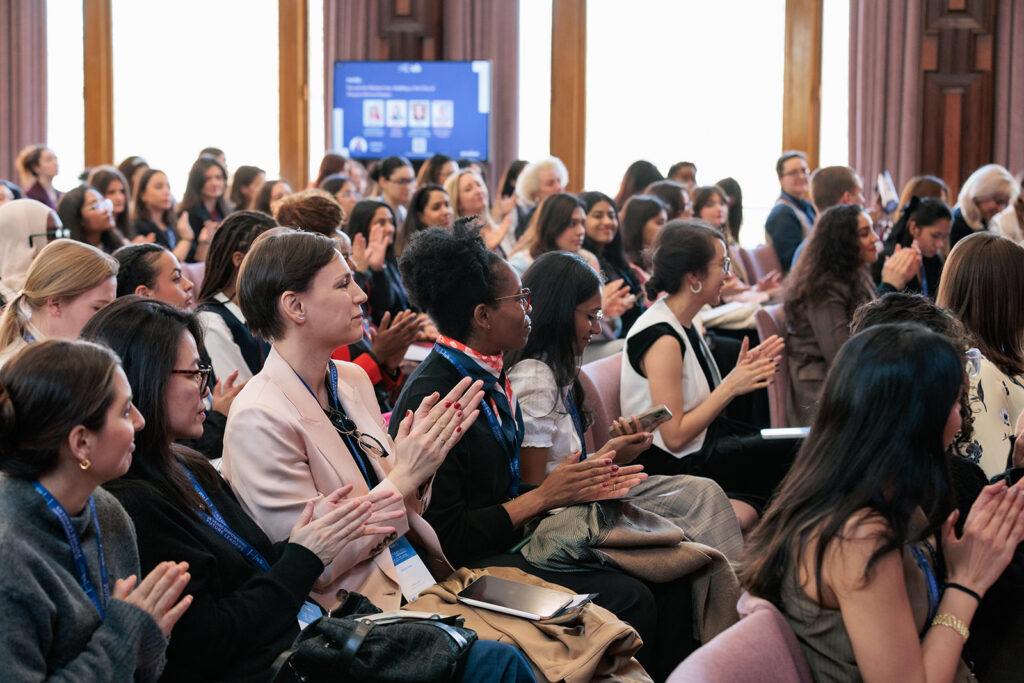
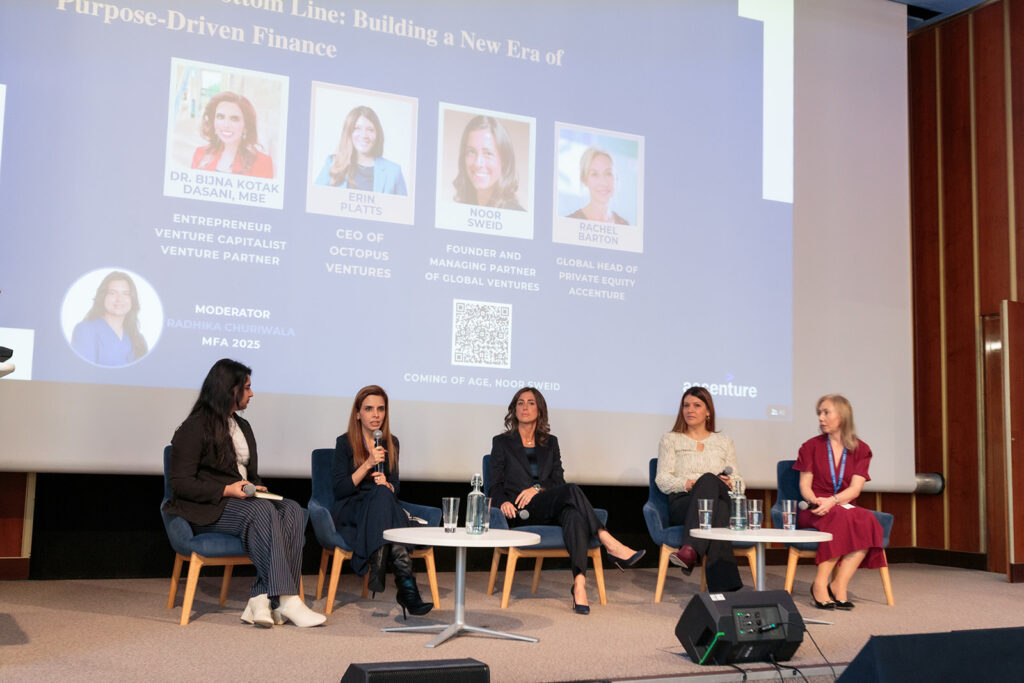
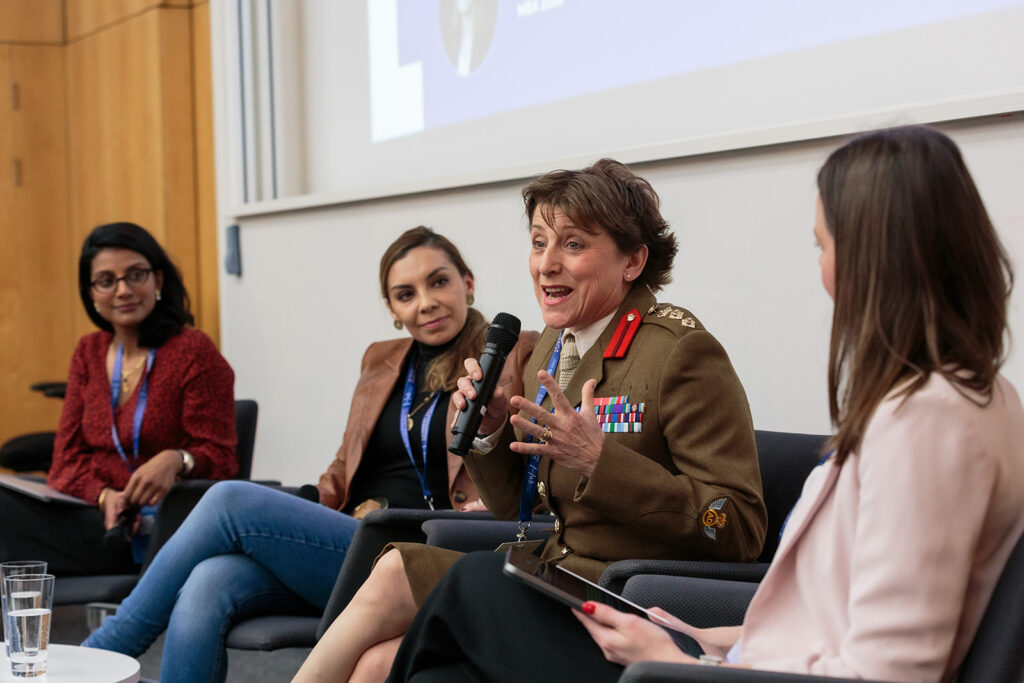
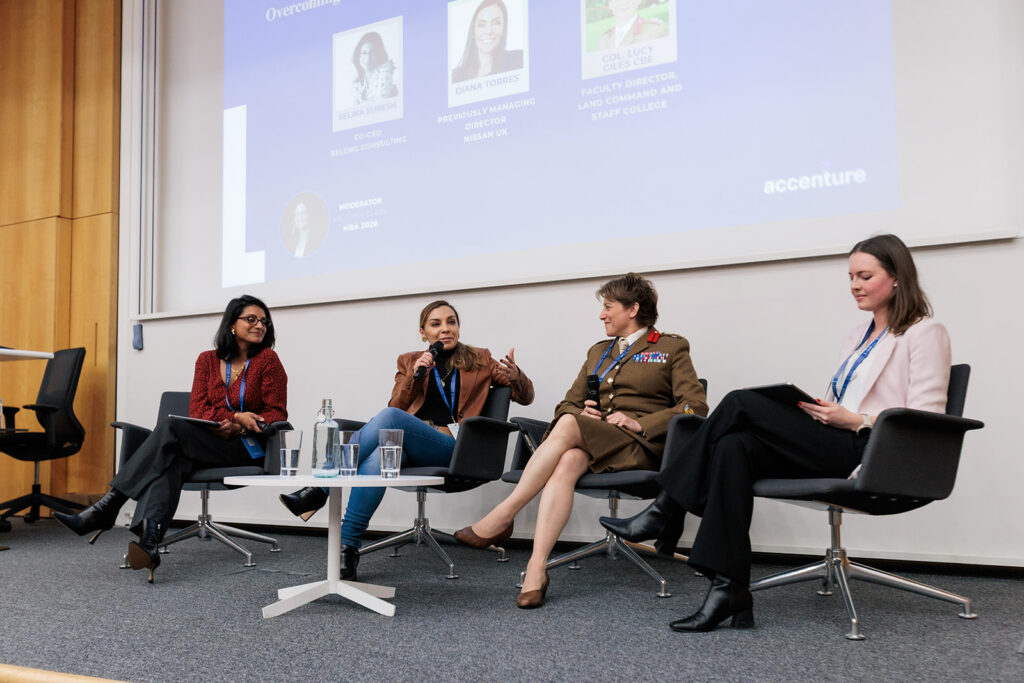
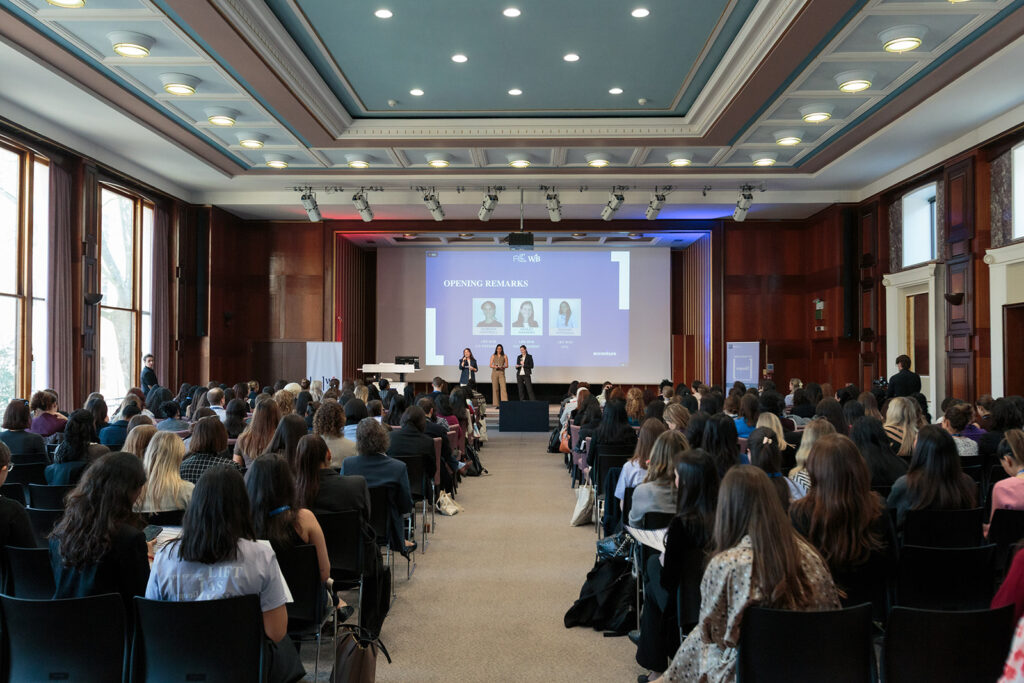
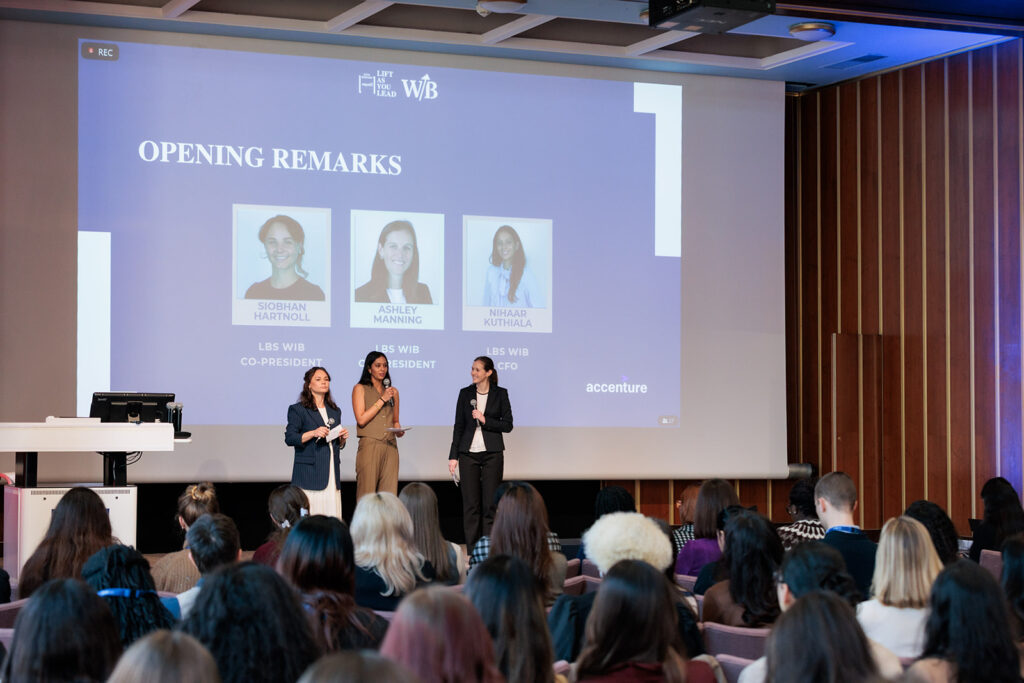
Beyond the Bottom Line: Women Transforming Finance
The panel discussion on women in finance explored how female investors and entrepreneurs are reshaping private equity and venture capital. The panel featured industry leaders including Dr. Bijna Kotak Dasani (ArthAum Group), Erin Platts (Octopus Ventures), and Noor Sweid (Global Ventures). This panel was moderated by Radhika Churiwala, MFA 2025.
Sweid shared her experience serving as a judge on MENA’s Shark Tank, noting how access to business education differs by region. In many parts of the world, women rely on media rather than formal education for investment knowledge. Recognising this gap, her firm now creates social media content with two-minute financial insights content that has attracted a 40% female audience. The power of representation in finance, she argued, cannot be overstated.
Sponsorship emerged as a key theme throughout the discussion. The panellists agreed that securing sponsors not just mentorsis crucial for advancing in finance and investment. Platts, CEO of Octopus Ventures, echoed this sentiment, discussing how her own career trajectory was shaped by early sponsors who championed her growth.
She also reflected on the remarkable evolution of the UK and European start-up ecosystem over the past two decades. While access to funding has significantly improved, she emphasised that the next challenge is scaling Series B capital to sustain high-growth ventures. Female founders, in particular, often struggle with credibility, facing assumptions that their businesses are passion projects rather than scalable ventures. The message was clear: overcoming these challenges requires both structural changes and a shift in mindset.
Women Driving Change in Emerging Markets
A recurring theme throughout the discussions was the role of women within emerging markets. Moyo and other speakers highlighted that financial inclusion and investment access remain disproportionately skewed in these regions, despite significant strides in global gender equity.
Moyo highlighted the challenges Africa faces in competing on a global scale due to economic fragmentation. She urged African nations to adopt regional economic blocs to enhance trade, reduce financial inefficiencies, and improve capital flows. Without such reforms, she warned, emerging markets will struggle to access the capital needed to drive large-scale economic growth.
Sweid, through her work in MENA, underscored the barriers women face when accessing venture capital. Many women in emerging markets rely on non-traditional learning platforms, such as social media and television, to gain financial and entrepreneurial knowledge. Her experience on Shark Tank MENA revealed the pressing need for accessible education models to close the financial literacy gap.
Platts also noted the growing investment opportunities in emerging markets, emphasising that while capital is more available now than ever, local investors and policymakers must work together to ensure sustained funding. At Octopus Ventures, where Platts leads as CEO, two female investors play a key role in shaping investment decisions, and approximately 43% of their investments are directed toward diverse teams and founders. This commitment highlights the growing momentum behind inclusive capital allocation and the potential for financial institutions to drive systemic change.
Overcoming Invisible Barriers
While increasing investment in diverse founders is a step in the right direction, women in leadership continue to face structural and cultural hurdles that go beyond securing capital. A powerful discussion at the conference tackled the invisible challenges women face in the workplace—barriers that often stem from both external biases and internalised limitations. The panel, featuring leaders such as Diana Torres (Nissan), Col. Lucy Giles CBE, and Selina Suresh (Belong Consulting), stressed that leadership is not defined solely by assertiveness; instead, women can shape company culture in ways that bring inclusivity and long-term transformation. This panel was moderated by Manvi Goel, MBA 2026.
A key theme of the conversation was the idea that women sometimes “clip their own wings” due to heightened awareness of systemic challenges, often leading them to hesitate in pursuing leadership opportunities. The panellists stressed that while these barriers are real, they can be overcome with the right mentorship. Supportive sponsors can actively advocate for women in leadership, ensuring they receive the opportunities they deserve. Rather than navigating these challenges alone, women must leverage networks and allies to break through glass ceilings.
This session reinforced the broader message of the conference: career progression for women is not solely about individual resilience, but also about reshaping workplace cultures and advocating for systemic changes that allow all women to thrive As I reflected on the stories and insights shared throughout the day, I couldn’t help but see my own journey in them. The conversations at this conference were a reminder that real change happens when we actively push for it—whether by advocating for ourselves, creating space for others, or challenging outdated norms in our industries. As I continue my career, I hope to be a part of that change, ensuring that more women don’t just get a seat at the table but also have the influence to shape the conversation.
EQUALL Leadership Team
The EQUALL conference is organised by London Business School Women in Business Club, it is an annual gathering of leaders dedicated to empowering women and creating lasting change in gender equity. The conference features keynote speeches, panel discussions, and networking opportunities that explore the challenges shaping the future of women’s ambition and leadership. To explore the full agenda and speaker lineup, visit the conference webpage here.
The EQUALL Leadership Team this year was comprised of Ashley Manning, Siobhan Hartnoll, and Nihaar Kuthiala, all pursuing their MBA in 2025, and serving as WIB Co-Presidents. Deb Carey and Francesca Pinto, also MBA 2025 candidates, held the roles of EQUALL Co-Chairs. You can see the full list of the EQUALL team here.
About the author

Keertana Anandraj (MBA 2026) is an intern at the Wheeler Institute for Business and Development. Prior to joining London Business School she was a member of the International Sustainability Standards Board’s Technical Staff where she helped develop the first-ever global sustainability standards on climate-related risks and opportunities. A graduate of Wellesley College, Keertana is passionate about the role businesses can play in tackling the climate crisis.
